the descent: insights from the underworld
the first trimester of pregnancy as psychological rebirth
Approaching new motherhood and pregnancy in today’s digital, overly commercialized age feels like falling into a fever-dream of forums and aesthetically curated social media posts, all swamped with horror stories, unsolicited advice, and an endless barrage of 'must-have' products, apps and courses.
Like any chronically online millennial, I found myself tumbling down this very rabbit hole in January 2024, shortly after staring (and squinting) in shock at the faintest double pink lines on my positive pregnancy test.
The longer I gazed into the online abyss, the more despondent I became.
The overarching and reductionist to-do list mentality, with countless apps to track every conceivable symptom, depicted the process of bringing new life into this world through a clinical lens, devoid of any nuance or intuition.
This one-size-fits-all approach seemed to completely strip away the profound, transformative essence of childbirth and motherhood that has been revered since times more ancient than we could possibly fathom. I refused to approach my pregnancy in this superficial way.
Frustrated and overwhelmed by the dystopian landscape of mommy-blogger land, I slammed my laptop shut, silencing the digital noise. With that simple act of self-affirmation, a wave of relief instantly washed over me. I decided then and there that this journey would be an initiation, an alchemical transformation. It was time to trust myself — and thousands of years of primordial feminine wisdom.
But first, a more immediate tradition called: the ritual of morning sickness (also known as projectile vomiting into my kitchen trash after smelling the inside of my refrigerator).
absence of embodiment
For most of us, the inherent interconnectedness of mind, body, and spirit is rarely a focal point in our daily lives.
The notion that there is a tangible link between our mental processes, our physical forms, and something as ethereal as the transcendent often sits uncomfortably in a society that prizes logic and rationality above all.
In our modern age, we are frequently uneasy with the raw realities of bodily experiences and even more so with the idea of surrendering to what might be termed a divine process. Our current cultural narrative has constructed formidable barriers between our intellectual faculties, our physical selves, and the transcendent function.
While the average person might fleetingly and superficially engage with the concept of a mind-body-spirit connection during a quick YouTube yoga session, a 10-minute mindfulness meditation via the latest digital app, or perhaps even while experimenting with psychedelics—and sometimes through experiences of chronic pain, disability, or illness—nothing quite compares to the profound - and almost forced - engagement with embodiment that pregnancy invokes.
After years of convincing ourselves of the illusion that we are in complete control over our lives - and even our bodies’ processes - witnessing the autonomous metamorphosis during pregnancy can be startling and sometimes downright unsettling.
This transformation demonstrates how our bodies intuitively guide this inner process without our direct involvement—from the growth of the placenta to the development of an entirely new human life. This revelation forces us to redefine our understanding of control and underscores the profound synergy between mind, body, and spirit.
In the Western world, we often forget a wisdom once universally acknowledged: that the material and spiritual realms are profoundly interconnected. This perspective saw illness, bodily sensations, emotional upheavals, and major life transitions as initiatory experiences—metaphorical deaths and rebirths on a path deeply intertwined with archetypes and myth.
Much like the ancients who could not even conceive of a life devoid of spiritual significance, a pregnant woman in her early months undergoes a profound internal transformation that the modern world often overlooks.
“Of all the blood mysteries, childbirth most often involves descent. Perhaps this is because the mother’s moon is full, at an extreme requiring its opposite for balance. The mother finds polarity of darkness into the descent of birth, a descent so dramatic that women often feel their lives on the line, as all vestiges of control and identity must be surrendered and swept aside.”
-Elizabeth Davis and Carol Leonard
letting the dead leaves drop
As a woman navigates through morning sickness, the unsettling upsurge of unfamiliar emotions, and the various bodily changes of the initial phases of pregnancy, she faces the stark realization that the person she once was is being both literally and figuratively reshaped, paving the way for the emergence of an entirely new Self.
This initiation into motherhood is not merely about creating new life but a profound personal process of transfiguration, reconnecting her with the forgotten alchemy of existence, where each challenge is a rite of passage marking her evolution into a new identity.
There truly is nothing like the first trimester of pregnancy to connect a woman to what depth psychology terms an 'underworld experience'—a phase viewed as the necessary 'descent' that author and Jungian analyst James Hillman describes. This is a time for shedding the old Self before it can be reborn in a completely new form.
Pregnancy involves not only giving birth to and creating new life, but also a profound transformation and rebirth of ourselves as women. In our modern age, we have become profoundly and disturbingly disconnected from the alchemical and deeply spiritual aspects of this journey.
During the first few months of pregnancy, I found myself plunged into a kind of personal underworld.
Physically, my days were marked by nausea, exhaustion, and an unshakable desire to lie in a pitch-black room all day. Emotionally, I was completely raw and exposed; feelings I had never experienced before began to surface as everything familiar started to recede into the all-consuming darkness.
I realized that mommy-blogs, with their checklists of symptoms and baby items, were not going to rescue me from the underworld, so I immersed myself in mythology.
Just as mythical figures descend into darkness to find wisdom and strength, I too sought to navigate these shadows of early pregnancy to prepare for my transition into motherhood, surrendering to what felt like an innate desire to withdraw from the external world and focus deeply on the intensely personal process of creating new life.
This required me to embrace this process not merely as something to be managed from a strictly intellectual and biomedical perspective, as modern society seems to insist, but as a profoundly spiritual experience, marking the death of my former identity and the birth of a new Self.
Through this new perspective, I began to view the early phases of pregnancy not just as obstacles to be overcome or boxes to tick, but as integral parts of a sacred journey toward rebirth and psychological renewal.
One morning, in a moment of synchronicity, I was flipping through the pages of Elinor Gadon’s book, The Once & Future Goddess, and found myself on a page detailing the ancient Sumerian myth of Inanna, the queen of heaven and earth, who embarks on a perilous journey to the underworld.
In the myth, Inanna approaches seven gates, and at each one, she is required to shed an article of clothing or jewelry, symbolizing the layers of her former Self that must be relinquished to fully enter the realm of death and rebirth.
As I read, I was engulfed in full-body goosebumps, realizing how similar this act of stripping away was to the transformative shedding I was experiencing during these early months of pregnancy, where resistance was quite literally futile—I was being forced to let my old Self fall away, sliding off like the skin of a snake, to make way for my new role as Mother.
As noted by anthropologist Robbie Davis-Floyd, childbirth transcends mere physicality—it signifies a profound life transition. In her seminal work, Birth as an American Rite of Passage (2004), she explores how childbirth aligns with other pivotal life events such as baptisms, bar and bat mitzvahs, weddings, graduations, retirements, and funerals.
These moments clearly delineate our lives into distinct 'before' and 'after' phases. Through these transitions, we are not merely moving from one stage to another; we are transformed, reborn into new roles and identities that reshape our very essence.
In that moment of profound realization, I felt deeply connected to the larger archetypal narrative. It was all so much bigger than me. Just like Inanna, I must move through stages of surrender, transformation, and ultimately—resurrection. Yes, my baby girl would be born, but I, too, would be reborn.
Instead of adhering to a checklist, I decided to view each stage of my pregnancy as a gate, a step deeper into the unknown. At each gate, I promised myself I would let go of the woman I was to embrace and acknowledge the one I am becoming.
"The snake always means resurrection on account of shedding its skin. According to an African myth, there was no death on earth originally; death came in by mistake. People could shed their skins every year and so they were always new, rejuvenated, until once an old woman, in a distracted condition and feeble-minded, put on her old skin again and then she died. That is the way death came into the world. It is again the idea that human beings were like snakes originally: they did not die. The snake was always associated with death, but death out of which new life was born."
- Carl Jung, Seminar on Nietzsche's Zarathustra (1934-1939)
news + monthly recommendations
I announced to my paying subscribers a few weeks ago, but now it’s official: my Substack will be entirely free moving forward.
Previously, I shared additional resources at the end of each post—miscellaneous finds I was geeking out over each month—exclusively with paying subscribers. From now on, everyone will have access to these goodies for free. I’ll use this section not only to share these bonus items but also to update you on my recent work and ways you can support me as an independent creator if you choose to.
With that out of the way, let’s get into it, shall we?
Non-cringe birth and pregnancy stuff
As I already mentioned, I wrote this piece during my first trimester. At the time, finding pregnancy and motherhood resources that didn’t induce a gag reflex or reek of over-commercialized influencer cringe was a tall order, to say the least. Now that I’m sitting here at the tail-end end of my eighth month of pregnancy — and incredibly ready to be un-pregnant —I can share a few gems I’ve discovered along the way.
Heads up: I’ve sought out resources that support a natural, physiological labor and empower me with the confidence that my body is made for this, sidestepping the unnecessary interventions often pushed by the biomedical model. Everyone’s journey is unique, and while my path might not be for everyone, I’m sharing for those who resonate with this approach.
★ BOOKS: I added a new list to my Amazon book recommendations totally focused on what I’ve been reading throughout my pregnancy which you can check out here. If I were to pick one book out of this entire list, though, it would be Reclaiming Childbirth as a Rite of Passage by Rachel Reed. Hands down.
★ YOUTUBERS: This one was f*cking tricky. There is so much awful YouTube content out there and I waded through the worst of it for you. You’re welcome. Here were my all-time favorite YouTube finds: 1) HeyShayla 2) A Werking Mama 3) Bridget Teyler 4) Care About Little Ones (come for their great evidence-based advice, stay for their hilarious Austrian accents) 5) Nurse Zabe 6) Mama Nurse Tina.
★ PODCASTS: Informed Pregnancy Podcast, Birthing Instincts, Down to Birth, The Fearless Birth Podcast, The Midwives’ Couldron, and HeyShayla’s podcast.
my new podcast episodes
A lot’s been going on in the Back from the Borderline podcast universe, y’all. Here are some of my newest episodes you can dive into for free right meow:
★ the beauty paradox: unpacking our toxic obsession with youth and appearance
★ healing your dysregulated nervous system: from flailing through life to micro-dosing silence with elisabeth kristof
★ the evolution of melancholia: from ancient narratives to modern depression
★ how psychiatry became the fast food of mental health treatments: exposing systemic failures and hidden agendas with dr. roger mcfillin
★ mending mind and spirit: the path of sacred psychiatry with dr. judy tsafrir
★ takedown: laila mickelwait’s battle to expose the 'executive megapimps' behind pornhub's sex crimes
★ how to work with your dreams: uncovering your soul’s messages and transforming trauma with louise rosager
★ online stigma and BPD: reacting to the internet's worst takes on pete davidson and jenna ortega
★ anatomy of evil: charles manson (charisma, manipulation, and control)
★ mean girls: healing from and overcoming the hidden harms of female bullying
★ how to stop turning every minor concern into a major meltdown
and finally, a playlist
My friend Sterling - who makes the best playlists - sent this to me. So instead of gate-keeping it, I’ll share it with you. Enjoy. ✌️
If you love what I do here, there are a few ways to support me (and dive even deeper into my work) that would mean a hell of a lot:
★ Follow Back from the Borderline on your favorite podcast player to receive new episodes every Tuesday and Thursday [click here to do that]
★ Check out my Patreon, where you can dive into hundreds - yes hundreds - of hours of additional bonus content including my inner child healing meditations. Support from my Patrons is what enables me to support myself as an independent creator. [click here to browse my premium content with free previews.]






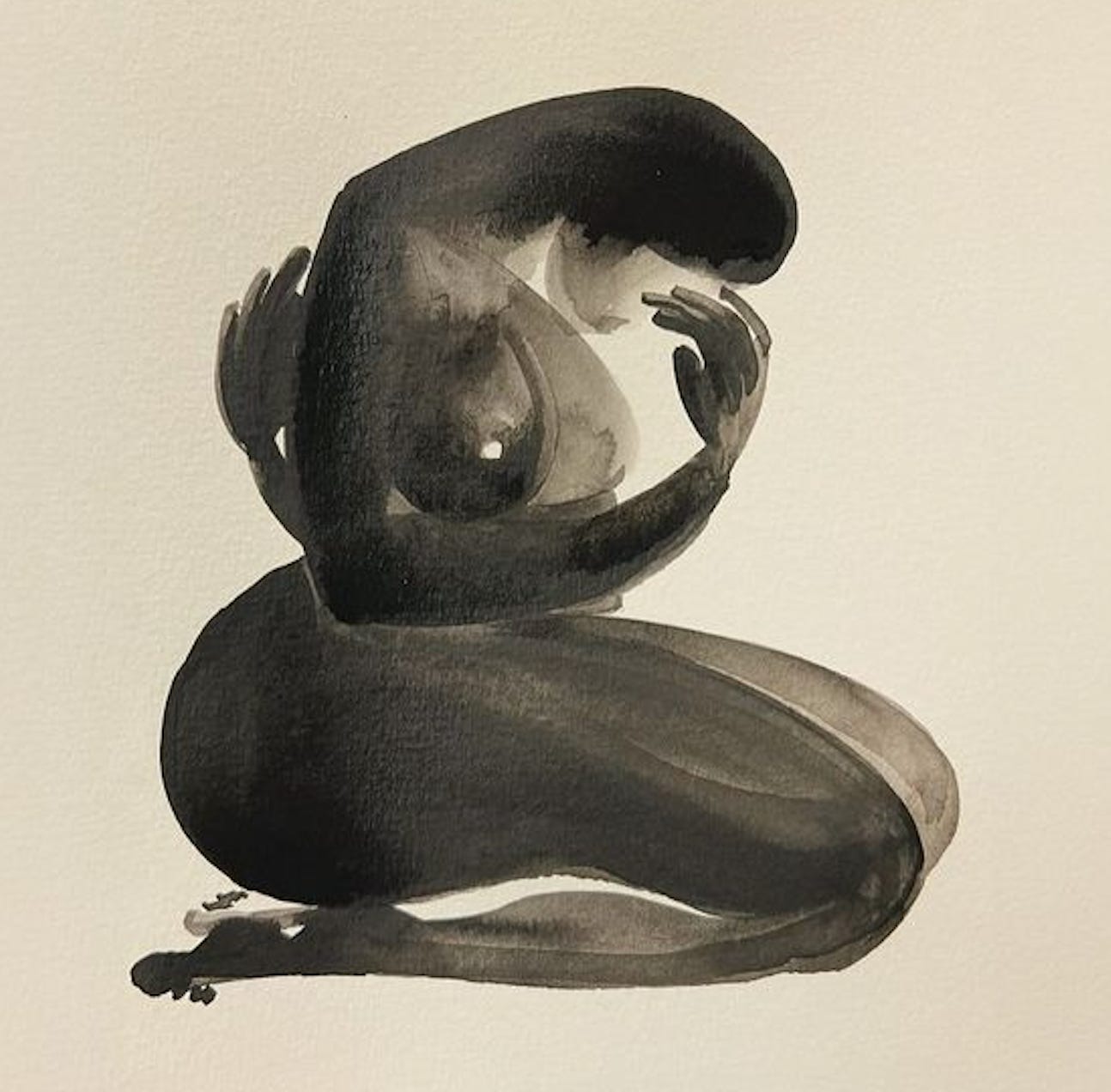
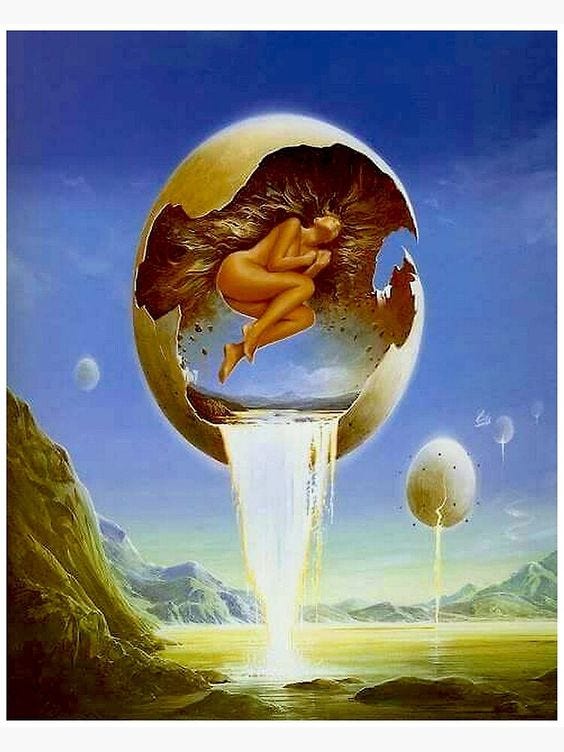
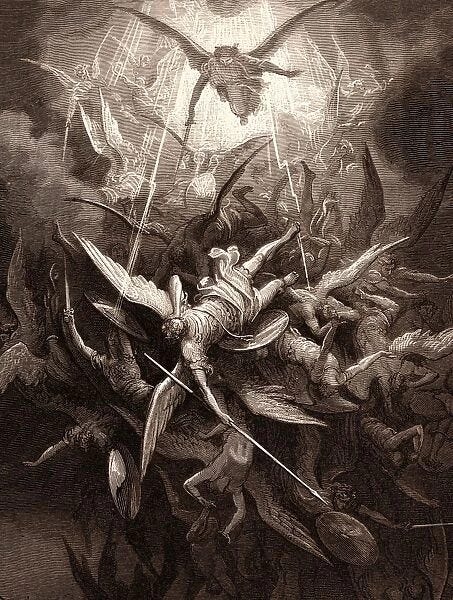
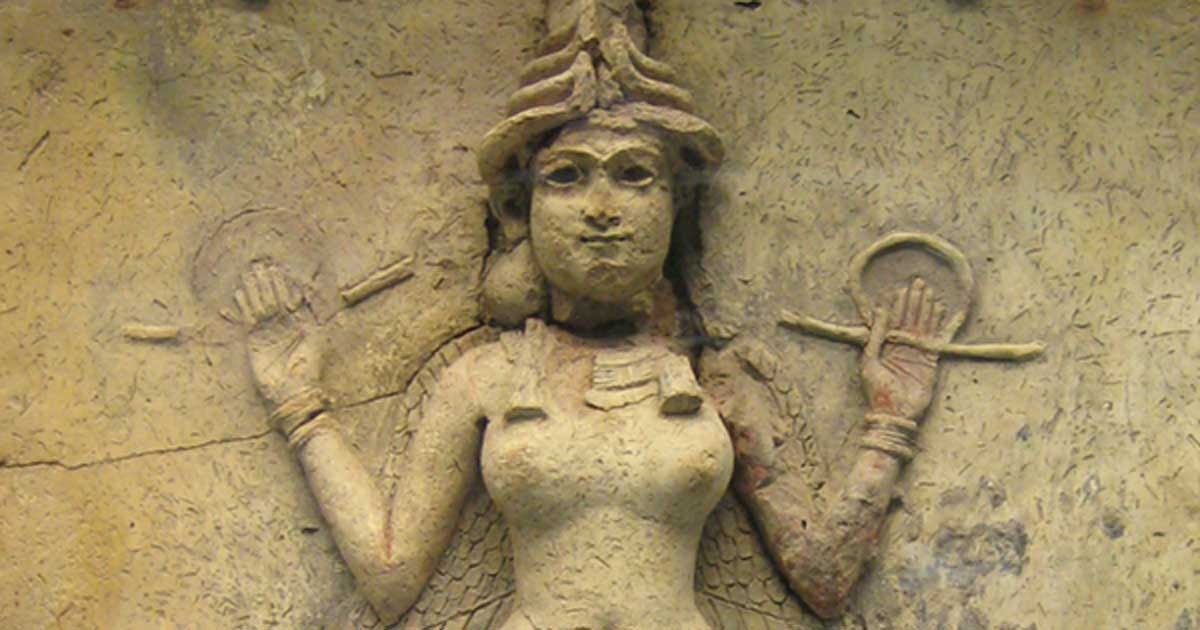
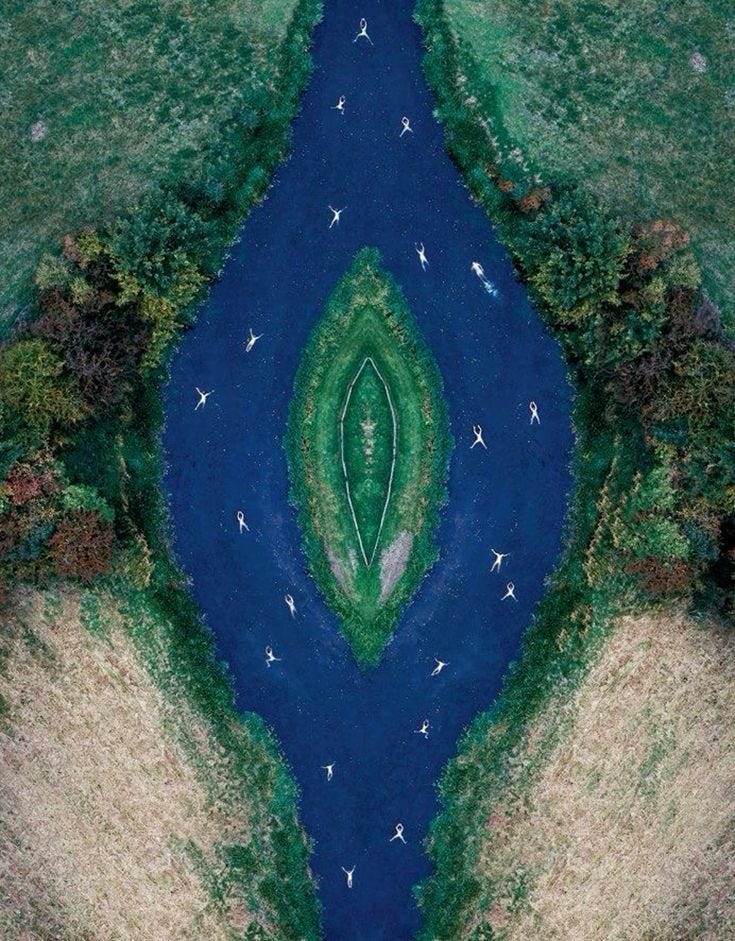
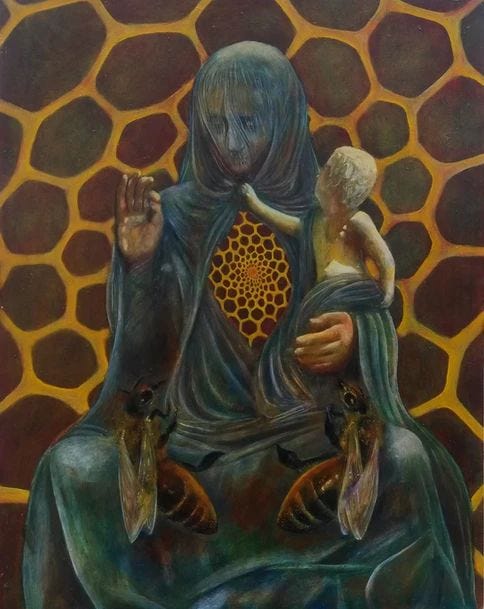
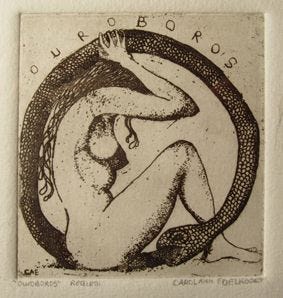
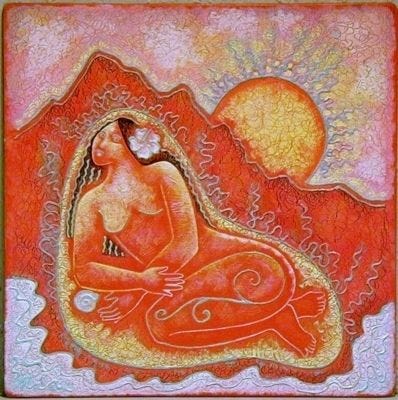

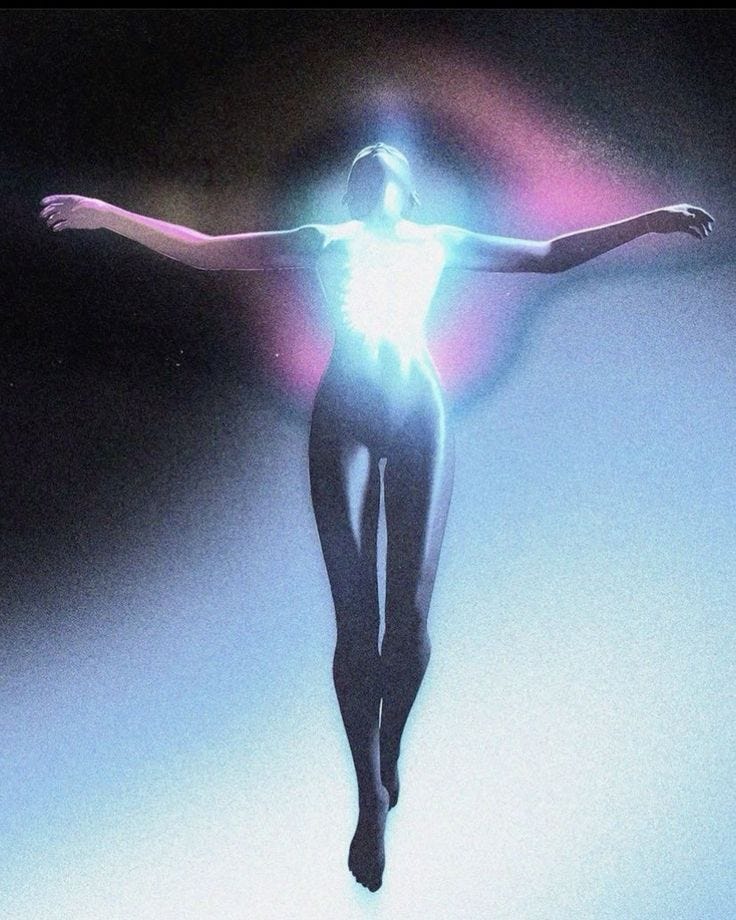
This was a refreshing read—the writing of pregnancy as it has been for millennia—a transformation and initiation. I'm opposed to the contemporary world's sanitisation of pregnancy, menstruation, menopause, and every initiatory experience for human beings.
I can't recall what book I read this in (it may have been 'Burning Woman' by Lucy H. Pearce) but the author made me aware of how, in the Western contemporary world, we no longer have community and initiation rites, and so when we move through life's phases we're plunged into solitary fear, anxiety, and depression, unsure of how to navigate through very natural (and by rights, very naturally painful) experiences of the human condition.
Have you read 'The Pregnant Virgin: A Process of Psychological Transformation' by Jungian analyst Marion Woodman? This isn't so much about literal pregnancy but rather psychological gestation and birth. Apologies if you have already referenced or recommended it (I've only just discovered your Substack and podcast), but I sense it's the kind of book you read.
I'm very much looking forward to reading more of your pieces and listening to your podcast. Thank you kindly, Mollie.
- Mae